Course in French theory, L3-M1 LIPS, Université d'Aix-Marseille, January-April 2022.
This course follows on from the international colloquium Derrida 2021: biopolitics and deconstruction organized by CIELAM in December 2021, the proceedings of which are published in issue 13 of the journal Malice.
Course presentation
At the end of La Volonté de savoir, Michel Foucault breaks with his earlier work on madness and prison, which set out to understand the forms and techniques of power in terms of confinement and control, inclusion and exclusion. The essential object of politics is life; its stake - the body. This gave rise to a new way of thinking about the political, what he would henceforth call biopolitics, and which Jacques Derrida and Giorgio Agamben would follow in his footsteps. We will study this conflicted and controversial legacy and, through it, draw out a biopolitics of the literary text.
Program
1. What is biopolitics? Michel Foucault
- Chapter 5 of La Volonté de savoir: the device of sexuality. Right of death and power over life. Transformation of sovereignty and the emergence of biopolitics. Managing life. Reference to Aristotle. Modalities of biopolitical action: from law to norm. In literature: from discourse to stage. Scandal as a departure from the norm. Les Bijoux indiscrets.
- The 1978 course: Security, territory, population. Moving from a theory of sovereignty to a theory of governmentality. Modulations of power: the code of law and punishment; disciplinary mechanisms; the security apparatus. Comparison with computer science: writing a code; standardization of this code through the introduction of taxonomies; administration of the database by a cms, which is a security device. The problem of historicizing modulations of sovereignty. The example of disease and its political management: leprosy, plague, smallpox. The Covid. A seventeenth-century treatise: La Métropolitée by Alexandre Lemaître (1682). The city as a device.
- The 1979 course: Naissance de la biopolitique. Freud with Virgil: Acheronta movebo. Walpole with Suetonius: Quieta non movere. "A certain choice of method": the problem of action and the problem of the unconscious. Emergence of raison d'état in the 17th century, transition to contemporary biopolitics. Limited and unlimited objectives of power: the federated state (European model) and the imperial state (Russia, Turkey, China). Intrinsic limitation of government action: the police (polysemy of this word). A key text: Rousseau's Economie politique .
2. Foucault's legacy: Agamben and Derrida
- Agamben, Homo Sacer I. The two lives, βίος and ζωὴ. A new, Aristotelian definition of biopower: a politics whose essential object would have become bare life. Evacuation of the Enlightenment and introduction of the Schmittian theory of sovereignty as a structure of exception. Completing Foucault's unfinished theory?
- Agamben and the concentrationary hypothesis. The reference to Hannah Arendt
- Derrida, Politics of friendship, chap. 6
- Derrida, The seminar The beast and the sovereign
3. The completion of the Enlightenment: around Sade's Histoire de Juliette
- Adorno and Horkheimer, The Dialectic of Reason, Digression II
- Lacan, "Kant with Sade"
- Lyotard, Dispositifs pulsionnels, "Capitalisme énergumène"
Composed commentary: Sade, Aline and Valcour, Sainville's conversation with Sarmiento in Butua (letter 35, Pléiade, pp. 560-566)
Critique et théorie
Archive mise à jour depuis 2008
Critique et théorie
Généalogie médiévale des dispositifs
Entre économie et mimésis, l’allégorie du tabernacle
Trois gouttes de sang sur la neige
Iconologie de la fable mystique
La polémique comme monde
Construire Sénèque
Sémiologie classique
De la vie à l’instant
D'un long silence… Cicéron dans la querelle française des inversions (1667-1751)
La scène et le spectre
Dispositifs contemporains
Résistances de l’écran : Derrida avec Mallarmé
La Guerre des mondes, la rencontre impossible
Dispositifs de récit dans Angélique de Robbe-Grillet
Disposition des lieux, déconstruction des visibilités
Physique de la fiction
Critique de l’antimodernité
Mad men, Les Noces de Figaro
Le champ littéraire face à la globalisation de la fiction
Théorie des dispositifs
Image et subversion. Introduction
Image et subversion. Chapitre 4. Les choses et les objets
Image et subversion. Chapitre 5. Narration, récit, fiction. Incarnat blanc et noir
Biopolitique et déconstruction
Biographie, biologie, biopolitique
Flan de la théorie, théorie du flan
Surveiller et punir
Image et événement

